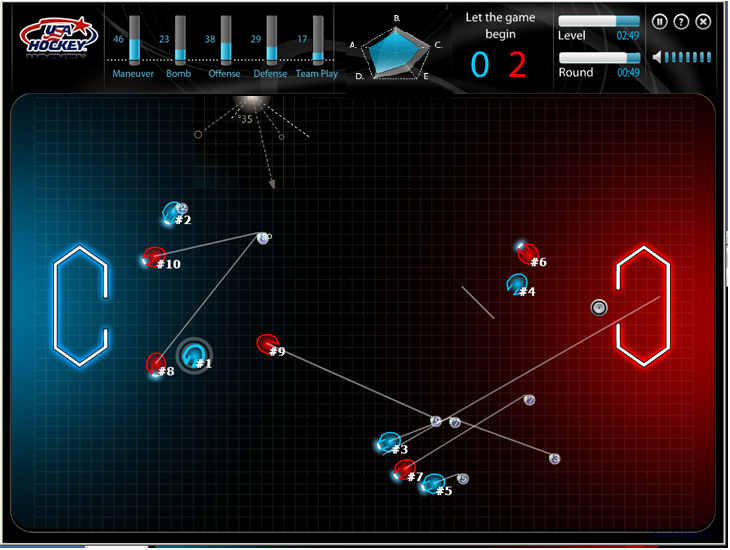“Playing video games won’t get you anywhere” is a common refrain from parents everywhere. But many parents of hockey players know that it can help their children reach the Olympics, thanks to a game called Intelligym.
USA Hockey, whose Olympic team will be competing in the 2014 Sochi Winter Olympics starting Saturday, has used Intelligym to train its two Youth National teams, U17 (under 17) and U18 (under 18), since 2009. Intelligym is a game-like program that enhances mental performance in high-pressure situations. Its basic graphics might not look like much, but USA Hockey coaches claim that it enhances their players’ ability to think quickly and effectively on the ice.
Intelligym has its root in cognitive training for military fighter pilots. According to Prof. Daniel Gopher, whose research team developed the software, pilots improved their in-flight performance up to thirty percent. The team then formed Applied Cognitive Engineering (ACE) and created a basketball simulation that focused on the same mental skills fighter pilots need: “quick decision-making under pressure, shot selection, anticipation, execution, team work and spatial orientation.”
That’s when USA Hockey entered the picture. After ACE’s basketball program showed successful results, USA approached the company about developing a version tailored to hockey. Five years later, both organizations claim that the specialized game has stepped up the performance of cohorts who’ve been using it, with significant increases in win percentages and international gold medals.
ACE says that athletes should use Intelligym a couple of times a week for 30 to 45 minutes. Both the basketball and hockey programs are available to the public as individual subscriptions or team packages. The system keeps track of players’ statistics and caters to each player’s strengths and weaknesses while dynamically adjusting difficulty.
A representative from Intelligym said that he wouldn’t quite call the system a video game. “I play video games,” he said, “but Intelligym is different.” He emphasized that it was focused on improving performance in a sport, and it is more of a training tool. He does, however, believe that video games can be useful tools for improving cognitive skills if they’re designed based on scientific principles and with that goal in mind.
VentureBeat's mission is to be a digital town square for technical decision-makers to gain knowledge about transformative enterprise technology and transact. Learn More




![Reblog this post [with Zemanta]](http://img.zemanta.com/reblog_e.png?x-id=cff390d6-a761-4427-8d1a-586e6e782efb)
